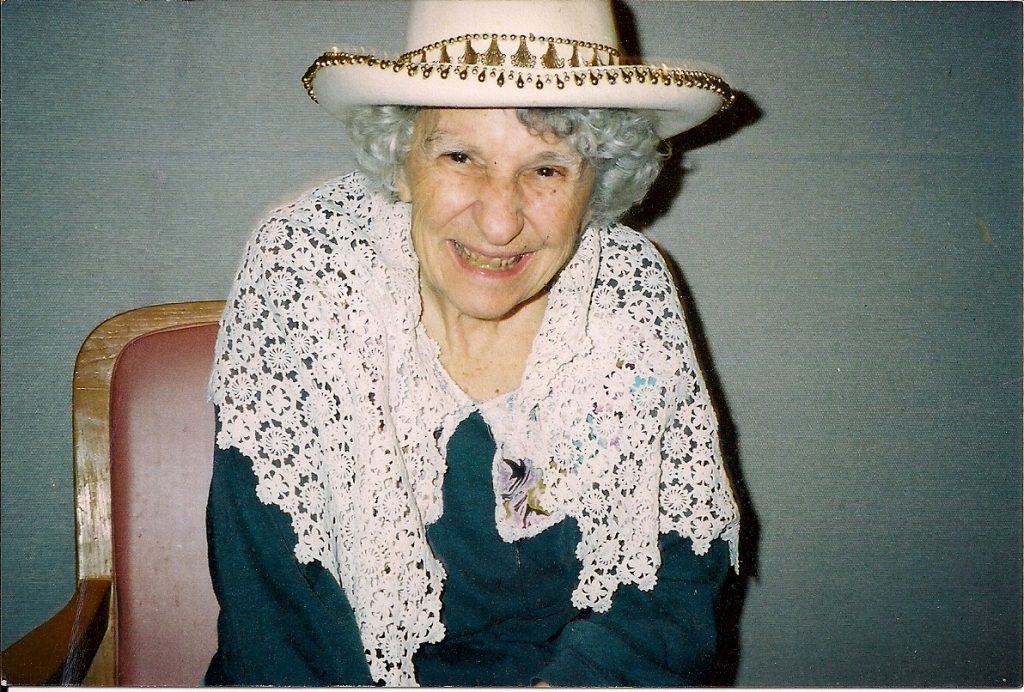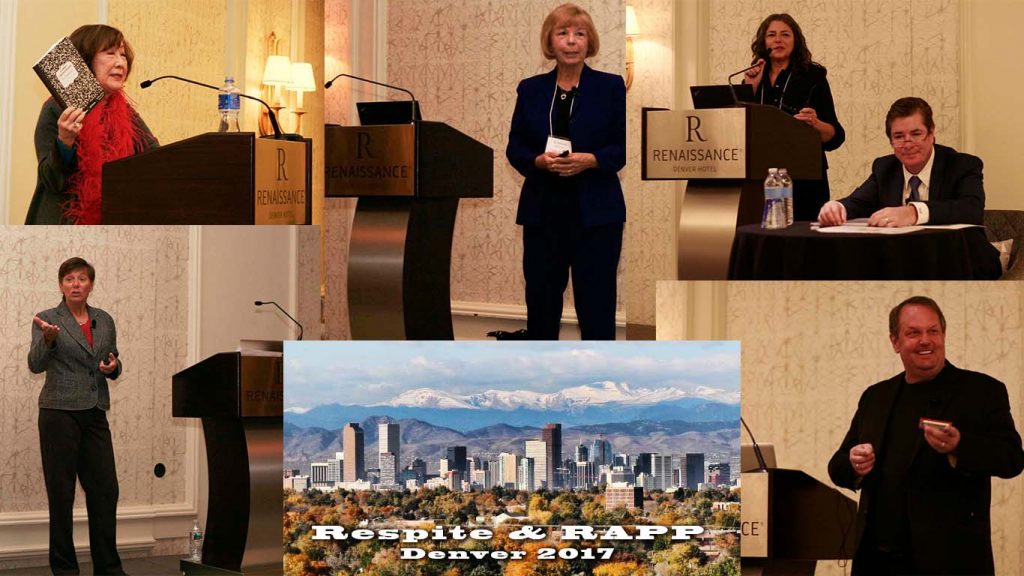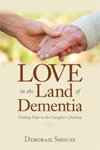Dementia-friendly activities
Hooked on Sharing Ideas and Stories that Connect
One of the many things we love about sharing ideas and stories that connect people during the dementia journey—we never know the brilliant, witty, and amazing things our participants will say!
Let me set the scene:
It’s Thursday evening and Ron and I are presenting a program in a church basement. Our audience is a group of dedicated parishioners who serve in the Stephen Ministry, which offers help, hope, and healing. Several are reaching out to people who are living with dementia and want to learn tips for having enriching visits. As we discuss ways to assist people in adapting hobbies and activities, I invite the group to get into dyads and share a favorite hobby and some of the things they enjoy about it.
This is a lively bunch of people and they instantly start talking.Two women on the front row laugh uproariously throughout the exercise. Of course, I am curious. When the exercise is over, I ask, “What are some favorite hobbies?” One of the laughing women points to the other and says, “Would you believe, the first thing out of her mouth? She said, ‘I’m a hooker.’”
There was a bit of a nervous silence.
“A rug hooker,” the woman explains, grinning.
Everyone laughs.
“I love to make hooked rugs and share with them people,” she says.
A man leans forward and looks right at her. “I’m a hooker too,” he says and pauses for dramatic effect. “I like to hook fish. Fishing relaxes me.”
The room lights up with generous laughter. Then we continue the practical matter of adapting hobbies.
So, hopefully you’re now “hooked” on this subject. Here are a few practical tips for adapting hobbies for and with those who are living with dementia.
- Discuss which hobbies are most important.
- List the components of each and learn which parts the person most enjoys.
- Adapt the experience as needed to fit changing abilities and interests.
For gardeners, is it the feel of their hands in the soil?
Is it producing flowers or harvesting vegetables?
Is it having something to take care of?
For those who like quilting, is it making the squares or the finished product? Is it the companionship with other quilters?
Or is it the texture and colors of the fabric?
For those who like cooking, is it the measuring and stirring?
Do they enjoy the aromas and textures of the ingredients?
Is it the joy of preparing something that thrills others?
Or is it the simple pleasure of tasting delicious foods?
With those answers, you can support the aspects of the activity that really resonate and enrich their lives.
Many people who live with dementia deal with social isolation. A big thank you to Nora Ellen Richard and those who are reaching out to stay connected.
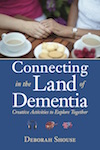
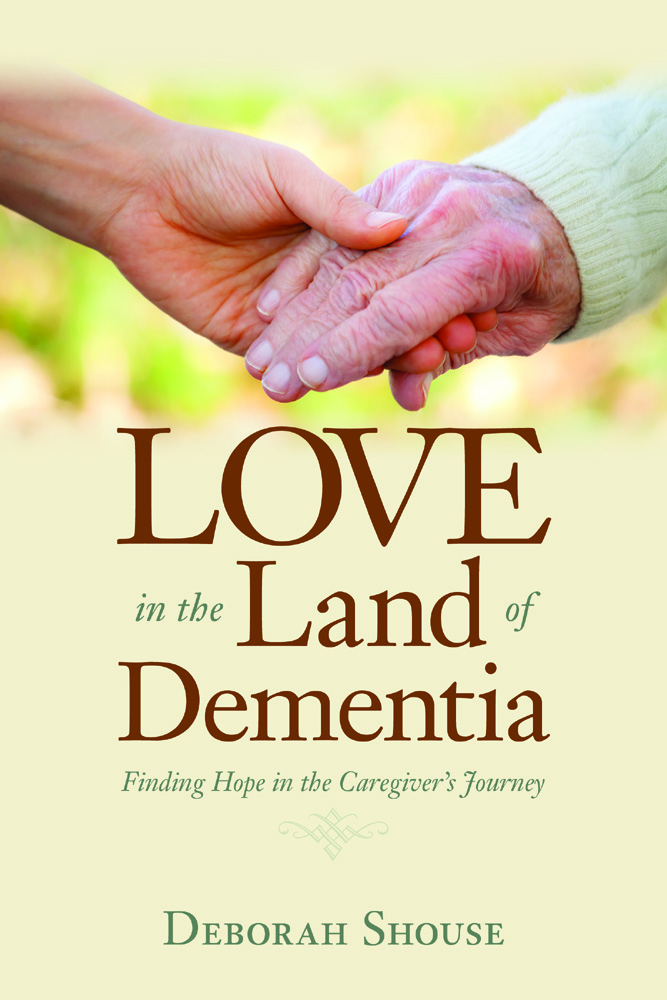
A Winning Combination: Children, Exercise, and Music
An orderly group of five-year-olds walk into the dining room at Vernon Manor in Viroqua, Wisconsin. The residents are waiting for them. Each child goes up to an elder and introduces him or her self. Then Ingrid Constalie, AD-BC, CDP, Board Certified Activity Director and Certified Dementia Practitioner, talks to the assemblage about the importance of staying fit. The residents nod sagely: many of them are in their eighties and nineties and they exercise every day. But the days that the kindergartners join them are the best, a winning combination or children, exercise, and music.
The residents love teaching the kids the alphabetic movements to the iconic YMCA song. And the kids are a burst of giggles and wiggles as they fold their arms into wings, strut around, and teach everyone The Chicken Dance.
Ingrid’s focus is creating moments of joy, engagement, and connection.
Her intergenerational activities spark the residents and reduce the stigmas of aging and dementia by educating and informing local children, teens, their teachers, and other members of the community.
“This dancing and exercise exchange is simple, energizing, and very successful,” Ingrid says.
Sing-O at Bingo
Music Bingo offers middle schoolers a chance to work with Ingrid’s elders.
“This is about creating a good experience for your partners,” Ingrid coaches the children in advance. “You are their connection to the world.”
Ingrid plays an opening melody, using songs such as “Happy Trails,” “You Are My Sunshine,” and “Singing In the Rain.” Those who know the title shout it out. Often, partners confer with each other. The children help locate the song title on the bingo card and place a poker chip on each answer. Even people living with advanced dementia enjoy listening to music and being around the children.
Most of the time, the school children are chatty and at ease. But one girl was scared coming into the care community.
“I paired her with Helen, a woman deep into dementia,” Ingrid says. “Within minute, Helen had her arm around the girl and they were both laughing.”
Even children who act up at school are wonderfully behaved during the Bingo experience.
Creating Comparisons and Compassion
Recently, Ingrid orchestrated a project with a high school English class. They interviewed residents and did a comparison and a contrast. For example: “While Clara is getting out of bed with the assistance of staff, I am getting ready for school. While she wheels herself down a long hallway to a dining room, I am eating toast with my sister.”
The teenage journalists asked simple questions, like “What is your morning like?” “How do you spend your afternoon?” “How do you like to dress?”
The students wrote up the results and made booklets. One family was so inspired by the insights in the booklet, they later read parts of it at the woman’s funeral.
Ingrid’s intergenerational connections explore understanding, create empathy, and help create exciting new relationships.


My Mom’s New Holiday Tradition: Smiling
**
We roll into the memory care facility’s dining room just as the show is ready to start. The singer, Thelda, kicks off her shoes and presses play on the boom box. Above the cheerful sound track, she sings Jingle Bells. She dances across the room with the remnants of ballroom steps. She stops in front of Mom and sings right to her. She gets on her knees, so she can look into Mom’s eyes, and keeps singing. Mom notices her and smiles a little.
Thelda moves on, singing to each of the patients gathered around, so intent on making a connection that she often forgets the words.
“Is it all right for your Mom to come to Christmas holiday events?” the activity director had asked me, when Mom moved in.
“Yes, I’d like her to go to any activities. She likes the extra energy.”
I think Mom would approve of my decision, even though she has never celebrated Christmas. Growing up, her immigrant mother held on to the Jewish spirit of her home, kneading dough for Friday evening challah, observing each holiday and prayer period in her own way. Some orthodox women followed the religious law that commanded a small piece of the dough be burned as an offering to God. My grandmother was poor; she did not believe in burning good food, regardless of tradition. So she sacrificed a portion of the dough to her youngest daughter, my mother Fran. She created a “bread tail,” leftover dough that she baked, then smeared with butter and sprinkled with sugar . When Mom used to talk about her mother, she always mentioned this special treat.
Even when I was growing up, and we were the only Jewish family in our neighborhood, my mother still did not sing Christmas song. She let the holiday rush by her, like a large train, whooshing past and leaving her behind.
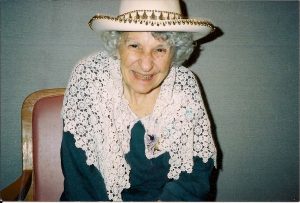 Now, I am singing Christmas carols to my Mom for the first time and she is smiling. She has moved beyond the place where the religions are different, beyond the place where she wants to separate the dough and make a sacrifice for tradition. Her new tradition is anyone who can make her smile.
Now, I am singing Christmas carols to my Mom for the first time and she is smiling. She has moved beyond the place where the religions are different, beyond the place where she wants to separate the dough and make a sacrifice for tradition. Her new tradition is anyone who can make her smile.
With each song, from White Christmas, to Silver Bells, to Frosty the Snowman, Thelda moves back to Mom, tapping her, acting sillier and sillier. Each time, Mom lifts her head and widens her mouth for a second.
For her finale, Thelda puts on a big red nose and sings Rudolph. When she dances in front of Mom with that scarlet nose, Mom laughs, her face a miracle in pure enjoyment. I laugh too, so delighted to see Mom engaged and absorbed.
Two weeks from now, I will bring a menorah and candles into my mother’s room. My father and I will have a short Chanukah ceremony with Mom. She will pick at the shiny paper covering the Chanukah gelt (chocolate candy disguised as money). She will slump over in her chair. But she will come back to life when she sees me, her only daughter, wearing a big red nose as I light the menorah.Here’s to a meaningful and fun holiday season.
I look forward to connecting with you when I resume blogging in early January.


Six Secrets of Dementia Inclusive Holiday Cooking
I named my brother Dan, our head chef, first. Then I included the support team—myself, my mom, my daughters and nephews.
“Did I help?” Mom whispered as I passed her the mashed potatoes.
“You sure did,” I told her. ”You mashed the potatoes, put the marshmallows on the sweet potato casserole, and mixed the fruit salad.”
“That’s good,” she said. “I like to help.”
Our desire to help and contribute to seasonal celebrations doesn’t end with a diagnosis of dementia. It’s lovely to linger in the kitchen together, preparing food for the holidays. It’s even lovelier when you can adapt and enjoy dementia inclusive holiday cooking so that people of varying abilities can participate.
Rebecca Katz, author of The Healthy Mind Cookbook, sees food as a great equalizer, something anyone can enjoy regardless of abilities. Fixing a delicacy for someone offers a tangible and delicious way to give back.
Here are six secrets of iementia Inclusive holiday cooking.
- Leaf through a favorite family cookbook or recipe box and use the pictures and recipes as a catalyst for conversation. Ask open-ended questions, such as, ”What does that brownie recipe make you think of?” “What do you like about the holiday season?”
- Chose a time of day when you’re both rested.
- Create a comfortable kitchen environment, by playing familiar seasonal songs you can both hum or sing along to. Reduce extraneous noise and distractions, such as a television in the background.
- If you wish, take photos during the experience. That way, you can relive the adventure and share with family and friends.
- Indulge in instant gratification, if possible, by sampling your work when the cooking is complete.
- Even if the person living with dementia can’t help prepare food, he can still enjoy sitting in on the action and the conversation.
Whether you’re stirring a pot of orzo or dropping mint leaves into cool water, enjoy your time of creation and connection in the kitchen.
A longer version of this piece originally appeared on Joan Lunden’s excellent website: Enjoy Dementia Inclusive Holiday Cooking. Thanks to Sue Fitzsimmons, MS, ARNP, Judith Fertig, author of The Memory of Lemon, Kate Pierce, LMSW, Alzheimer’s Association Greater Michigan Chapter, and Rebecca Katz, author of The Healthy Mind Cookbook
Deborah Shouse is the author of Connecting in the Land of Dementia: Creative Activities to Explore Together and Love in the Land of Dementia: Finding Hope in the Caregiver’s Journey.
Inside Dementia: Finding Gifts in the Journey
“My husband and I have been married for 53 years,” a woman with delicately curled silver hair and mournful eyes told the group. “But in the two years since he was diagnosed with dementia, our relationship has changed.” She dabs at her eyes with a tissue and takes a breath. “It has grown even stronger. We are closer than we’ve ever been.”
Ron and I were in a conference room of caregivers in Ft. Wayne, Indiana, presenting for the Greater Indiana Chapter of the Alzheimer’s Association. We had just shared my story, Love in the Land of Dementia, and we were all talking about the gifts we have found in the dementia journey.
Another woman, whose husband was newly diagnosed, talked about her frustration and impatience before the diagnoses.
“Now that I understand what is going on, I have vowed to be more patient. I don’t want to waste a minute of our time together.”
“My husband doesn’t know who I am right now,” another woman said. “But the other day, he gave me such a compliment. He told me, ‘I want to marry you.’”
She told us how she rummaged in her cedar chest and showed her husband their marriage certificate. He read it with interest. Then he looked at her, eyes shining, and repeated, “I want to marry you.” Those words, so filled with love, lifted her spirits immeasurably. “To think that even now, when he doesn’t remember much of our lives together, he still loves me so much, that means a lot to me.”
She smiled, as we all applauded this amazing love.
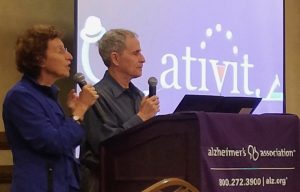 We heard more stories of amazing love at our earlier presentation in Merrillville, Indiana. When we talked about the gifts and blessings we had each discovered in the dementia journey, one woman told us, “I find it an honor to take care of my mother. She has done so much for me and I am lucky to get to care for her right now. I am glad to be able to show my unconditional love for her.”
We heard more stories of amazing love at our earlier presentation in Merrillville, Indiana. When we talked about the gifts and blessings we had each discovered in the dementia journey, one woman told us, “I find it an honor to take care of my mother. She has done so much for me and I am lucky to get to care for her right now. I am glad to be able to show my unconditional love for her.”
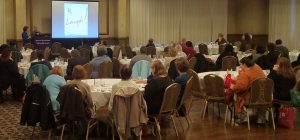
People shared many blessings—patience, the increased ability to live in the present, gratitude, flexibility, humor—but a deepening of love was the overarching message. We felt it during our own caregiving journeys, and we felt it deeply in the presence of those caregivers.
“The best and most beautiful things in this world cannot be seen or even heard, but must be felt with the heart.” Helen Keller
To learn more about the work the Greater Indiana Chapter of the Alzheimer’s Association is doing, please visit : https://www.alz.org/indiana/


Everyday Heroes and Nine Great Things We Learned This Weekend
This weekend we were lucky to be around a lot of heroes—the staff and grantees of The Brookdale Foundation Group, which supports national Relatives as Parents Programs, along with Group Respite programs. We loved the sense of commitment and community we felt at this event and we also enjoyed learning from other speakers and the attendees. Here are the nine great things we learned from this weekend’s conference.
I.
Explain
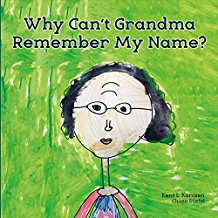 Kent Karosen, President and CEO of the Fisher Center for Alzheimer’s Research, spoke about his new children’s book, Why Can’t Grandma Remember My Name? Written about the way the brain is impacted by dementia and the affects it has on children, the book is illustrated in brilliantly colorful art, created by children, juxtaposed with art by people who are living with dementia. To learn more, www.alzinfo.org
Kent Karosen, President and CEO of the Fisher Center for Alzheimer’s Research, spoke about his new children’s book, Why Can’t Grandma Remember My Name? Written about the way the brain is impacted by dementia and the affects it has on children, the book is illustrated in brilliantly colorful art, created by children, juxtaposed with art by people who are living with dementia. To learn more, www.alzinfo.org
II.
Reframe
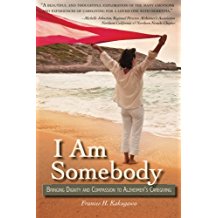 Frances Kakugawa, author of I Am Somebody, spoke of the powerful role poetry played in her caregiving role throughout her mom’s dementia journey. While scrubbing the floor after her mother’s bathroom accident, Frances thought, “There must be another poem here.” She decided to consider herself a poet-caregiver, rather than a struggling-caregiver. Reframing her image and her language helped her transform her attitude. You’ll enjoy visiting www.franceskakugawa.wordpress.com and learning more about Frances, her writing, and her many books.
Frances Kakugawa, author of I Am Somebody, spoke of the powerful role poetry played in her caregiving role throughout her mom’s dementia journey. While scrubbing the floor after her mother’s bathroom accident, Frances thought, “There must be another poem here.” She decided to consider herself a poet-caregiver, rather than a struggling-caregiver. Reframing her image and her language helped her transform her attitude. You’ll enjoy visiting www.franceskakugawa.wordpress.com and learning more about Frances, her writing, and her many books.
III.
Play
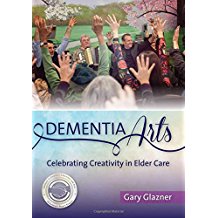 Who knew you could have so much fun with poetry! Gary Glazner, for one, founder of the Alzheimer’s Poetry Project, who lead the whole group in a rousing call and response version of several popular poems. Gary added in music, movements, and stoked up our enthusiasm and our energy. We also created a poem together. You’ll enjoy using his ideas to deepen your communications and your connections. Visit www.alzpoetry.com and treat yourself to his book, Dementia Arts: Celebrating Creativity in Elder Care.
Who knew you could have so much fun with poetry! Gary Glazner, for one, founder of the Alzheimer’s Poetry Project, who lead the whole group in a rousing call and response version of several popular poems. Gary added in music, movements, and stoked up our enthusiasm and our energy. We also created a poem together. You’ll enjoy using his ideas to deepen your communications and your connections. Visit www.alzpoetry.com and treat yourself to his book, Dementia Arts: Celebrating Creativity in Elder Care.
IV.
Support
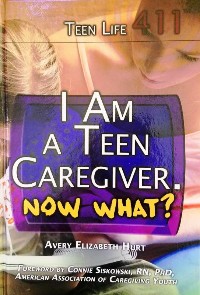 We were shocked and saddened to learn there are more than one million caregiving youth in our country, struggling to stay in school and keep afloat while taking care of ailing family members. Connie Siskowski’s organization, American Association of Caregiving Youth, provides support for these gallant middle schoolers and teens. To learn more about her program, visit www.aacy.org
We were shocked and saddened to learn there are more than one million caregiving youth in our country, struggling to stay in school and keep afloat while taking care of ailing family members. Connie Siskowski’s organization, American Association of Caregiving Youth, provides support for these gallant middle schoolers and teens. To learn more about her program, visit www.aacy.org
V.
Care
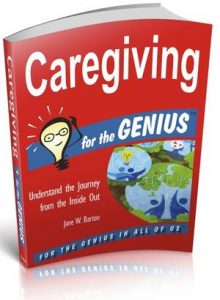 How many of us take enough time to truly care for and nurture ourselves. Jane Barton, speaker, write, and listener, spoke eloquently of compassion fatigue, born of too much caring for others and not enough focus on self. We laughed, cried, and reminded ourselves of the importance of self-care. Learn more from her at www.cardinalife.com and see her book, Caregiving for the GENIUS: Understand the Journey from the Inside Out.
How many of us take enough time to truly care for and nurture ourselves. Jane Barton, speaker, write, and listener, spoke eloquently of compassion fatigue, born of too much caring for others and not enough focus on self. We laughed, cried, and reminded ourselves of the importance of self-care. Learn more from her at www.cardinalife.com and see her book, Caregiving for the GENIUS: Understand the Journey from the Inside Out.
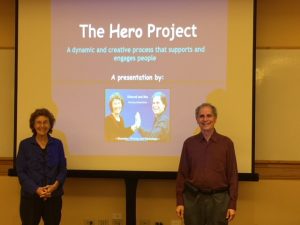 There were more amazing speakers, but we didn’t get to hear them because we were speaking all day Saturday, sharing two information-packed sessions of Connecting in the Land of Dementia and one session of our beloved The Hero Project. But just because we were teaching doesn’t mean we weren’t learning. Here are just a few of the tips we gathered from our participants.
There were more amazing speakers, but we didn’t get to hear them because we were speaking all day Saturday, sharing two information-packed sessions of Connecting in the Land of Dementia and one session of our beloved The Hero Project. But just because we were teaching doesn’t mean we weren’t learning. Here are just a few of the tips we gathered from our participants.
VI.
Give
As a way of adding meaning and purpose to life, one memory care day group created dog biscuits to donate to their local animal shelter. They stirred up a healthy mixture of organic ingredients, used cookie cutters, and delighted a lot of lonely pooches.
VII.
Collage
Another day care center helped a non-verbal resident create her own collage. One caring person watched carefully as this elder looked through a magazine, pausing at pictures of interest. Then the caregiver tore the photos that had intrigued the woman. Together, they glued them into a collage that the woman enjoys looking at often.
VIII.
Sing
“Song titles inspire singing and conversation,” one participant told us. She shouts out familiar titles and someone in her memory care group usually sings the next couple of verses, with others joining in. This often sparks a conversation about the song.
IX.
Share
The sense of community and generosity during the weekend reminded us again of why we love doing this work and of the importance of sharing things that work, things that don’t, and asking about things we wish we knew. Often, someone else has an answer for us, usually one of those quiet, but powerful, everyday heroes.


Chocolate Boosts Brain Health!
As the daughter of someone who lived with dementia, I do a lot of things to boost my brain health. I try to walk 10,000 steps a day, along with other exercise. I eat blueberries and broccoli. I do squats, try to memorize a few words of Spanish, and think about taking harmonica lessons. I try new things, laugh often, and practice drawing. But a recent study revealed that I was intuitively doing something else that was cheering on my brain, something I hadn’t even counted. Just in time for Halloween, it turns out Chocolate Boosts Brain Health!
I recently encountered a fascinating study on the Harvard Health website, and was intrigued when I read this headline: Cocoa: a sweet treat for the brain
Imagine being in Italy and contributing to scientific research by drinking a luscious dark cocoa drink every day for eight weeks. Then imagine feeling even more lucid, vibrant, and healthy after that experience. That is the essence of the Cocoa, Cognition, and Aging (CoCoA) Study, published in the American Journal of Clinical Nutrition in December 2014, with this flavorful title: Cocoa flavanol consumption improves cognitive function, blood pressure control, and metabolic profile in elderly subjects. (Note: It turns out some of the “elderly” subjects are as young as 61, an age some of us may argue is merely “middle-age.”)
A Chocolate Boost Makes Your Brain Boast
I am also in love with this Maine-Syracuse Longitudinal Study (MSLS), of 968 people that includes these mouth-watering assertions:
All cognitive scores were significantly higher in those who consumed chocolate at least once per week, than in those who never/rarely consumed chocolate.
“More frequent chocolate consumption was significantly associated with better performance on the Global Composite score, Visual-Spatial Memory and Organization, Working Memory, Scanning and Tracking, Abstract Reasoning, and the Mini-Mental State Examination,” said the research team, which included scientists from the University of Maine.
More Delicious Cocoa-flavored News
And another study from Loma Linda University, states:
“Dark chocolate, which is 70 percent cacao, is a major source of flavonoids –- powerful antioxidant and anti-inflammatory components that are known to be beneficial to cardiovascular health. The California team’s initial studies at Loma Linda University have shown that absorbed cacao flavonoids penetrate and accumulate in regions of the brain associated with learning and memory.”
“We are tremendously excited about what these findings could potentially mean for brain health,” said Lee Berk, DrPH, MPH, who led the team. “This may open the door for potential restorative uses for individuals with memory/recall or dementia and aging-related issues.”
Never Forget To Boost Your Brain
I now have a remedy for those days when I’m too tired to exercise, too busy for a crossword, too cranky for a brain game. Or for when I simply forget. On those days, I’ll simply treat myself to a taste of the dark side. And hope it leads me towards the light.
Want to learn more?
http://www.goodnewsnetwork.org/study-confirms-brain-and-memory-benefits-from-dark-chocolate/
http://www.health.harvard.edu/blog/cocoa


Insider Dementia Friendly Travel Tips, from Laurie Scherrer
This year, Laurie Scherrer is taking a number of trips: Atlanta, to speak at a conference, South Carolina, for a family reunion, and the Caribbean, as a speaker and participant in a dementia-friendly cruise. Since she is living with early onset dementia, Laurie plans out her trips, taking into consideration her needs and the chaos that can be a natural part of any journey. Here are some insider dementia friendly travel tips from Laurie.
Planning for a Smooth Flight
Laurie contacts TSA and her airline, notifying them of her disability, so they can mark it on her ticket. She and her husband both paid for a TSA pass, so they can go in together. That helps her avoid the bombarding noise, distraction, and exhausting wait inherent in a long check-in line
“The TSA staff will walk you through the line,” she says.
Laurie is sensitive to noises, so the constant airport announcements, the din of hundreds of conversations, and the drone of background sounds present challenges.
“I walk into a restaurant and I hear the clanging of the dishes, the forks on the plates, the waiter’s shoes thudding against the floor,” she says. “I have lost my ability to filter sound, and those noises are as strong as any conversation I’m having.”
To minimize distraction and confusion and to help her concentrate, Laurie often wears noise-cancelling headsets.
Once in the airport, she tries to find a quiet place to sit.
“I don’t sit at the gate for two hours with a slew of people,” she says. “Sometimes a restaurant or bar is quiet. For overseas trips, you can try to get access to an airport lounge.”
She tries to get a seat towards the front of the plane, to avoid additional waiting and wading through a crush of passengers.
Packing it Up
Two weeks before a trip, Laurie organizes her clothes for each day. She puts on an outfit, then takes a picture of it.
“On the picture I write, ‘Purple shirt, black slacks, white sneakers, white socks, etc.,’” she says. “Then when I pack, I put each day’s entire outfit together, including socks and underwear. That makes getting dressed so much easier.”
Getting Oriented
At any new hotel, Laurie and her husband walk around the entire building so Laurie can get oriented. When she is traveling alone, she talks to the hotel manager, to explain her situation. At one lodge, the receptionist escorted Laurie to her room and helped her unpack. Laurie carries a tag with her name and room number on it, in case of sudden confusion.
“Don’t be afraid to ask for help,” she says.
Taking Breaks
Laurie has already planned her quiet time and her personal getaways for the upcoming cruise, where she is both a traveler and a speaker/educator.
“On cruise ships, the library is often a quiet haven,” she says.
She also avoids group shore excursions, as it is hard for her to enjoy being in a crowd.
But it’s not hard for Laurie to relish travel and to revel in engaging in new experiences and meeting new people. It just takes a little planning and a lot of taking care of herself. #
To learn more about Laurie, visit https://dementiadaze.com/about-me/


Widening the World Through Travel
As the waiter served dessert, Lori La Bey looked around the table at her family and smiled. She couldn’t believe she had pulled this off — her children, her siblings and their children, and her parents all enjoying a Caribbean cruise together. Her mother was living with Alzheimer’s and her father had brain cancer: they had assumed they wouldn’t get to travel again. They were beaming and Lori knew all her planning had been worth it. She was widening the world through travel.
She still treasures the family pictures from this trip. This meaningful travel experience inspired Lori, founder and host of Alzheimer’s Speaks, to orchestrate a cruise for people who are living with dementia and their families.
“Travel is a normal part of life,” Lori says. “When you stop traveling, your world becomes smaller.”
From her years caring for her mom, Lori understands how easy it is to feel isolated and stuck. She also understands the joy of engaging in the world, trying new things, and meeting new people. Her trip enriched her family and she wants to offer others that gift of connection and adventure.
Lori also learned some tips from traveling with her parents. Here are a few ideas for creating a smooth traveling experience for yourself and for someone who is living with dementia:
Create a flexible travel experience. Lori chose cruising because it can be reasonably priced, you can unpack once and stay in the same room the entire trip, and there’s lots of flexibility with eating (including free room service), activities, and touring. Cruising is also ideal for the intergenerational experience, offering activities for all ages.
Make the person living with dementia part of planning the trip. Discuss the trip with all involved, asking for feedback and talking about what each person really wants to do. Incorporate those dreams into the trip.
Empower your travelers. Lori packed all her parents things into one giant suitcase. Her father had always been the one managing the luggage and he really wanted something to carry. “I hadn’t thought to pack a couple of small bags so he and my mom could feel like regular travelers,” Lori says. “People want something to be in charge of so they don’t feel left out.”
Work with a travel agent and make your life easier. Plan in advance for noise, long transfers, layovers, long car rides, and other chaos. If flying, call the airport if you need to arrange for wheelchairs or other inner airport transportation. To mute noises, bring earplugs. Carry along items that soothe and comfort each of us, including favorite music and head phones. If you’re cruising, talk to the cruise lines in advance, discussing special needs, including dietary, medical, and any mobility issues.
Take pictures and videos and document these precious moments. You’ll enjoy looking through these memories again and again together.
“Travel is about being together and widening your world,” Lori says. “It’s a wonderful way to build those moments of magical and meaningful connection.”
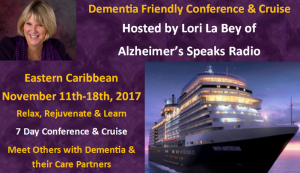
For an amazing way to widen your world, consider Lori’s upcoming November Dementia Friendly Conference and Cruise. Lori and a team of educators, including a panel of inspiring people who are living with dementia, have planned a nurturing, connecting, educational, and inspiring Caribbean trip. For more information, visit, https://alzheimersspeaks.com/cruise-with-us
Finding Meaningful Memory Care
“I feel like I’ve been on extended vacation,” Ron’s father Frank said, after his first day in a memory care facility. “Today was really enjoyable.” Ron and I just melted with happiness. We had visited many facilities, with the hope of finding meaningful memory care with great activities. Frank couldn’t have said anything nicer.
It’s quite an emotional journey, finding meaningful memory care. So many of you have asked me for tips. I am re-posting the great ideas from my friend, Dr. El, Dr. Eleanor Feldman Barbera, PhD, author of The Savvy Resident’s Guide and a columnist for McKnight’s Long Term Care News.
Finding Meaningful Memory Care With Engaging Activities
“Remember, everything is an activity,” says Dr. El. She encourages care partners to seek a community with a dedicated memory care program, so people with cognitive impairments can benefit from all the offered activities.
“In a specialized unit, staff are trained to work with people who are living with dementia,” Dr. El says. “This training can help people enjoy greater independence.”
In one facility, a lady liked to wander into people’s rooms and take their jewelry. Rather than getting upset, the staff understood, framed this as “shopping,” and simply returned the jewelry.
“These kinds of insights create a calmer, slower-paced environment that reduces agitation,” says Dr. El.
Seek Structure, Soothing and Variety
Here are some things to look for, as you visit facilities:
Is there a home-like atmosphere?
Is there a structure to the day?
Are there calming activities scheduled for change of shift? Changing shift is disruptive, so some communities orchestrate a teatime with music or other soothing activities.
You’re also making sure there are a variety of activities throughout the day. These should include:
Outdoor Time: Taking people outside makes a big difference in mood, appetite, and the sense of connection to the world.
Movement: Exercise is an important component to health.
Nurturing: Look for activities that make people feel confident and good about themselves, such as spa days or activities that incorporate skills such as cooking, art, or gardening, modified to provide a “success” experience.
Engagement: Being engaged, rather than just entertained, inspires a sense of purpose, creativity, and social connection.
Kindness is Everything
“Meet with the recreational therapist,” Dr. El suggests. “Is she compassionate and caring? Are the staff members kind? You can have all the activities in the world but if they’re not done with gentleness and humanity, they won’t work.”
Let the recreation director know what your loved one likes to do and see if she can adapt the activity.
Stay Involved
Visit as often as you can and attend activities together. Encourage friends and relatives to join you. Meet other residents and get to know the families and staff.
“You can act as a connector to create friendships, so residents engage in their own interaction, even when you aren’t there,” Dr. El says.
For more information, visit Dr. Eleanor Feldman Barbera, PhD, http://www.eldercarewithdrel.com,

Treat yourself to Dr. El’s book, The Savvy Resident’s Guide

